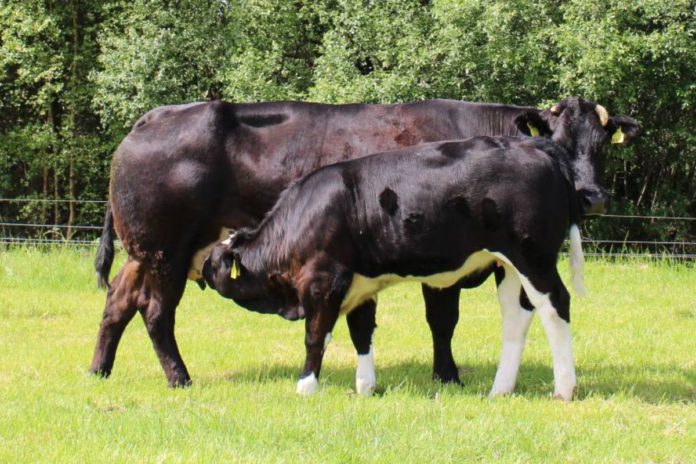In this week’s article, CAFRE’s Nigel Gould discusses breeding in spring calving herds and lungworm.
Farmers should continue to monitor for repeats. A high number of repeats may indicate an issue with bull fertility.
Options to counteract the financial loss associated with this are fewer towards the end of the breeding season.
When do you plan to remove the bull? On some farms, this question is never asked, and the bull often remains until the end of the grazing season.
Benefits of compact calving
Farmers need to assess the benefits of a compact calving need in relation to their own herd.
Where calving is more compact, the administration of vaccines is easier and can be better timed. Most vaccines come in multi-dose vials and, when opened, have a short life span of usually less than 24 hours.
Also, mixing older calves with younger ones will leave the latter more susceptible to disease.
Poor fertility in individual cows is more likely to go unnoticed, with calving intervals substantially extended.
A cow served on July 18th, and assuming an average gestation period of 286 days, will calve on the last day of April next year.
Therefore, if you don’t want any calves born in May next year, remove the bull in mid-July.
Lungworm
July and August are generally the months when cases of lungworm are at their highest.
Farmer should monitor young cattle, in particular, and check for coughing and panting after light exercise/running.
In more extreme cases, neck extension and mouth breathing can be observed, and damage is often irreversible.
Although more of a problem in young stock, cases in cows have become more common in recent years, where natural immunity has not had a chance to develop properly.
That’s Farming featured an article written by Michael Conroy, Teagasc Roscommon last year.
He outlined that lungworms or hoose will cause damage to the lungs and where severe will lead to pneumonia and permanent lung damage.
There is no resistance to the different classes of wormers, clear, yellow, and white drenches from the parasite.
So, any of the products will control lungworm. Older animals develop their own immunity to lungworm.
You can find a guide on controlling liver and rumen fluke, stomach worms, lice, and lungworm.





